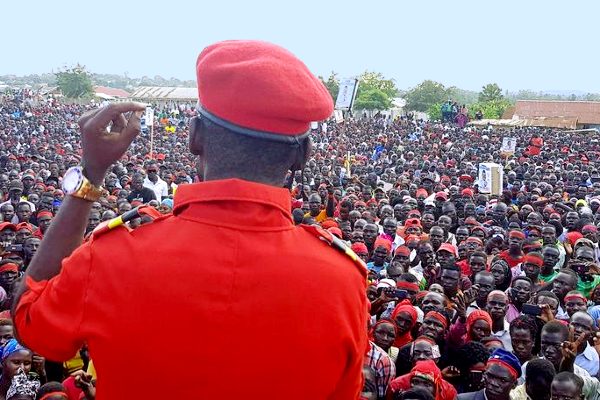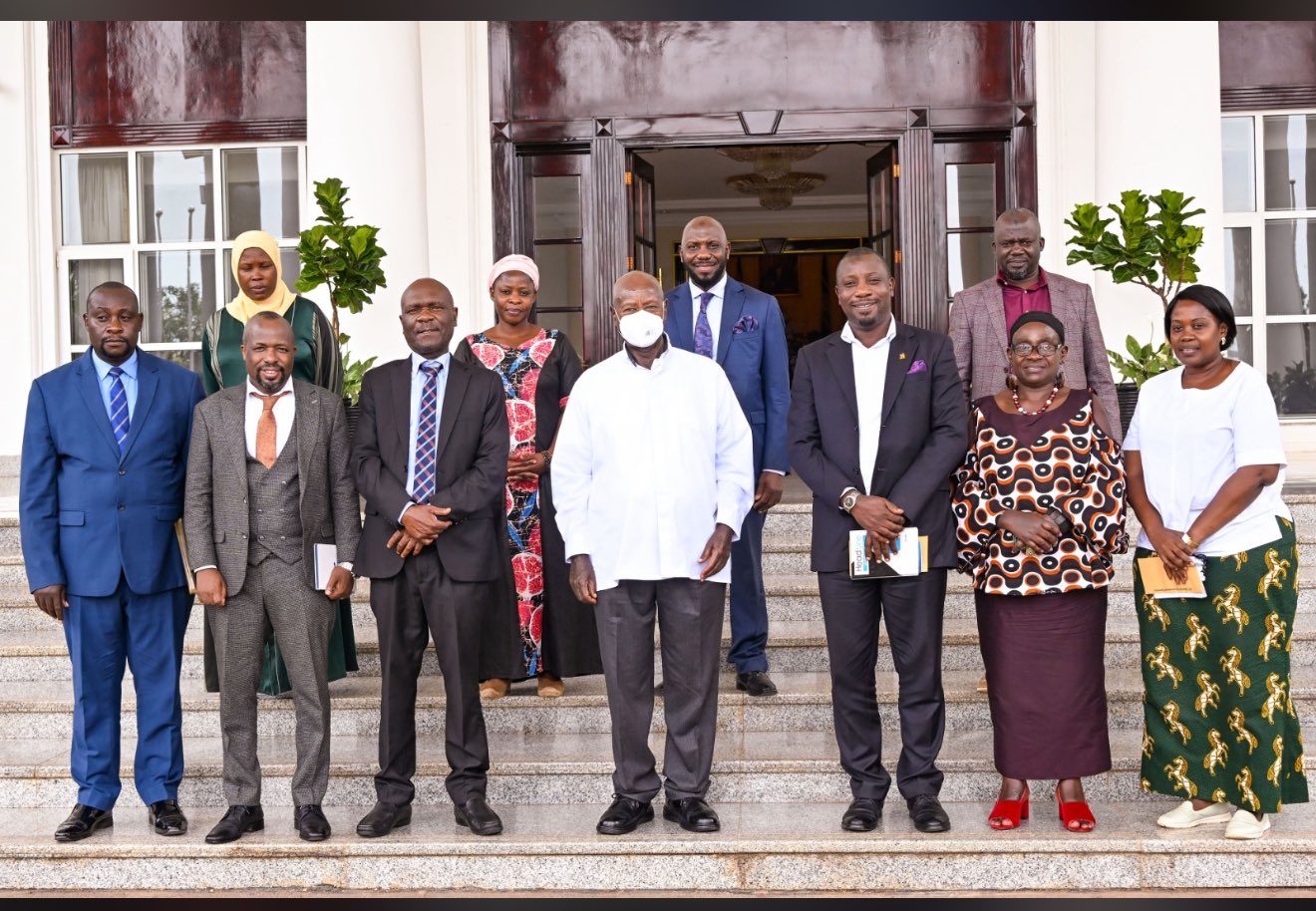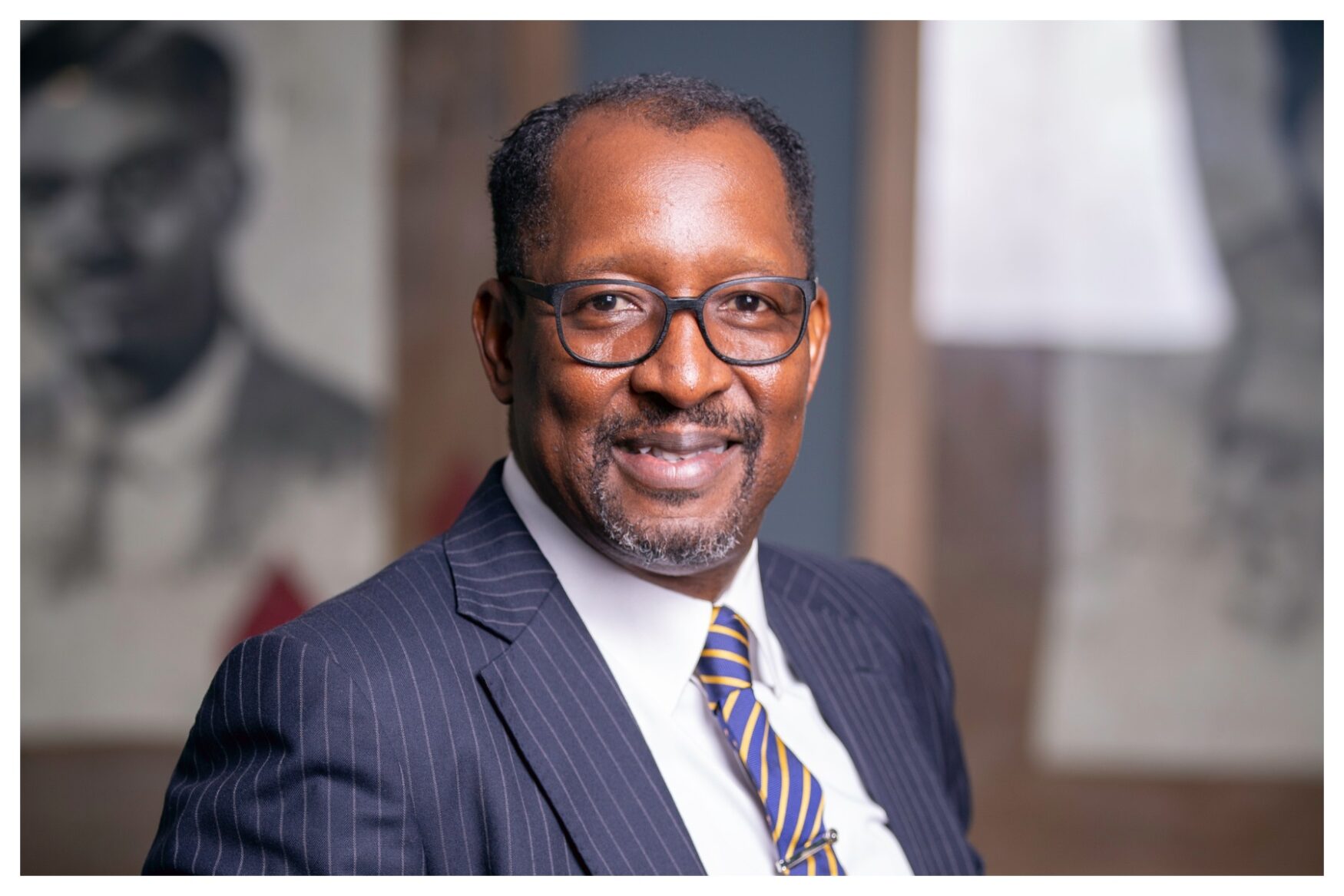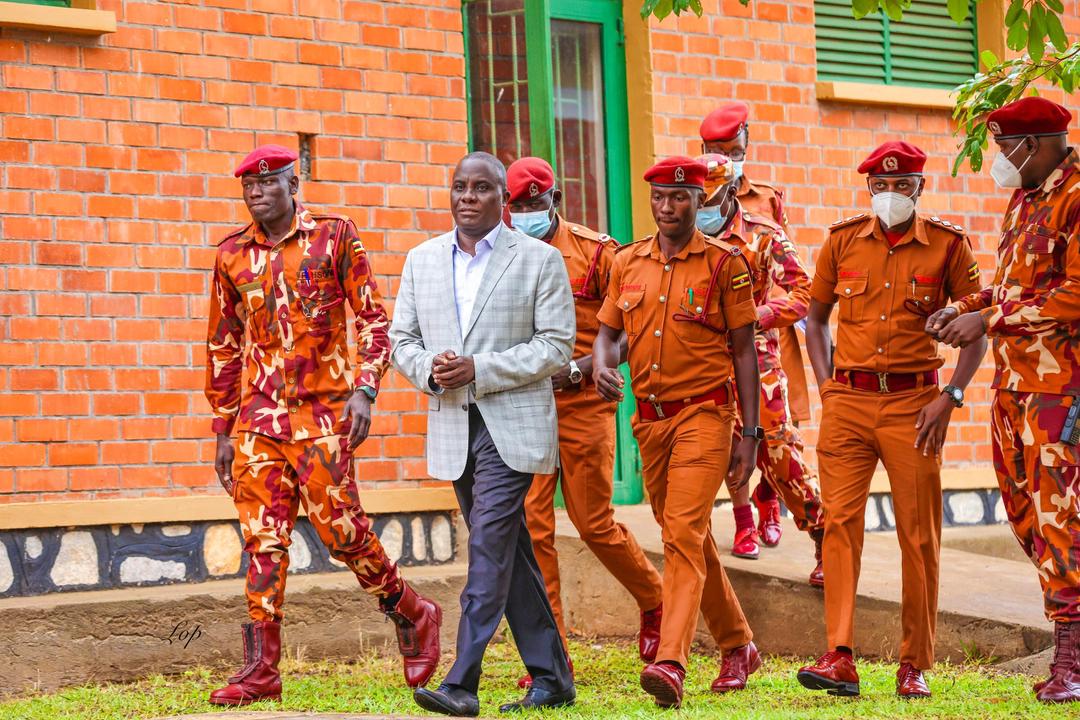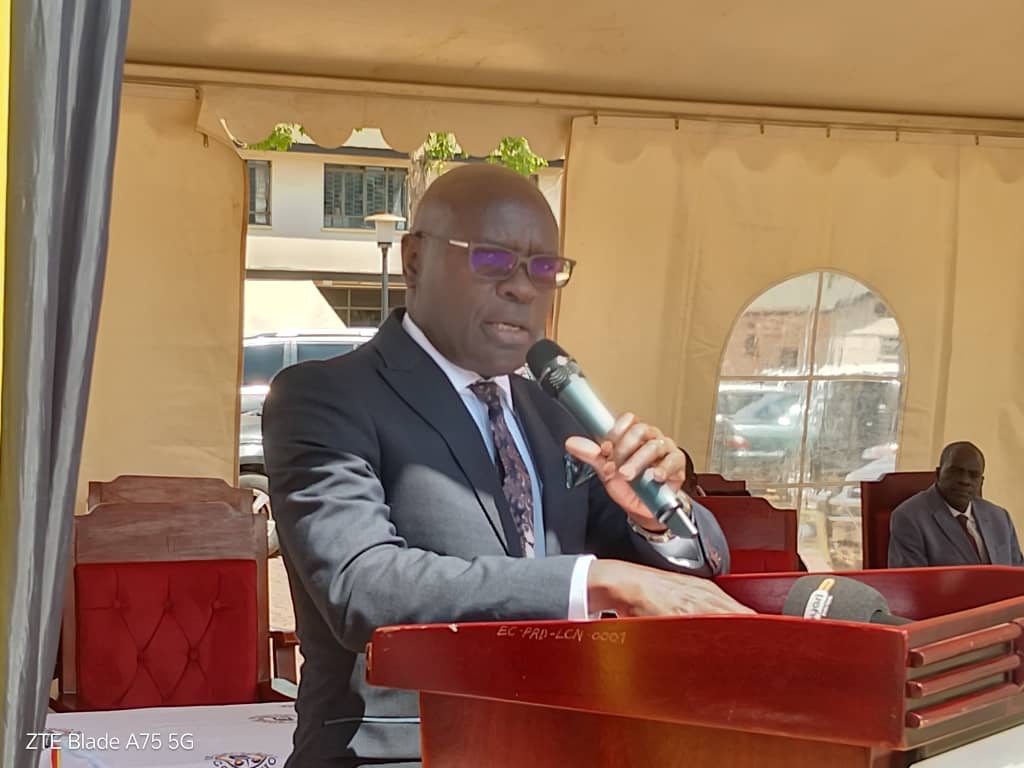My name is Simon Mwebesa, and at 26, I should be out there building bridges or drawing plans for the roads that wind through Kampala’s busy hills. Instead, I am staring at the same cracked wall in my small rented room in Kawempe, wondering if today I will finally eat something better than Kikomando.
It is September 29, 2025, and the air is full of the early sounds of election campaigns for 2026. Big posters are popping up everywhere like mushrooms after rain, promising jobs, change, and a better Uganda. But for me, and thousands like me—educated young Ugandans holding degrees that feel like useless paper—they are just more empty talk in a city that destroys dreams and leaves you feeling hopeless.
I finished university in 2023 from Kyambogo with a Bachelor’s in Civil Engineering. I was one of the best in my class for designing structures, they said.
“You have a bright future,” my lecturers used to say, and that certificate was a winning ticket. Haha. That was two years ago, and since then, my future has been a repeating cycle of starting the day with hope and ending it in disappointment. Let me tell you about a normal day, one that is the same for so many of us—other engineers, accountants, teachers—who walked those same dusty paths to university, only to hit a wall called “no jobs available.”
It starts at 5 a.m., when the chickens in the area wake up and the first rickety taxis drive by, their conductors shouting for passengers. I jump up from my thin mattress, which is worn out from too many sleepless nights. No electricity yet—Umeme’s power cuts are as sure as a politician’s lies—so I use my phone’s light to check the battery. It is at 20%, enough for maybe two hours of checking job websites before it goes off.
I splash cold water on my face from the jerrycan in the corner, the one I share with two other people living here. Breakfast? A cup of tea with milk if I am lucky; leftover cassava from yesterday if not. My mother sends what she can from the village—Shs 50,000 a month from her market stall—but rent is Shs 150,000, and transport to look for work takes the rest.
By 6:30 am, I am heading to town through Kampala’s dirty air. If I use a boda boda that day, I have to fork out Shs 10,000 (to and fro) for the round trip, bargaining with the rider, who is probably also a graduate, delivering packages, or carrying drunk people to survive.
We dodge potholes that could eat a whole tyre—funny, because that is the kind of road problem I would fix if someone hired me.
At the internet cafe in town, I log into BrighterMonday and JobWeb Uganda. “Civil Engineer – needs two years of experience.” “Junior Site Supervisor – only for diploma holders.”
My CV? It is well-written: unpaid work at a small building company during school, projects on better drainage for areas that flood easily, and even a report on buildings that can withstand earthquakes in our shaky areas. But the job ads? They ignore me.
I send five applications anyway, typing fast on the dirty keyboard, feeling sad as I click “submit.”
Around mid-morning, I walk to building sites. Today, it is the big Standard Gauge Railway extension near the Uganda-China Friendship Road. I heard through a WhatsApp group—200 former Kyambogo students sharing tips about jobs—that a Chinese company is hiring locals for supervisor roles.
I arrive covered in dust but ready, with my CV in a plastic cover to protect it from the red soil. The gate guard looks at me like I am selling phone credit. “Interviews? Go see the foreign manager.” I climb a shaky ladder to the site office, where fans blow against the heat and plans are spread out like old maps.
The manager, a serious Kenyan with a clipboard, looks at my papers. “Good qualifications, right? But we need someone with five years on big projects. And connections—do you know anyone in buying supplies?”
Connections. That is the problem. Jobs here are not given based on skills; they are given like trades at money exchange places. Talk of bribes follows you everywhere—Shs 50,000 to the HR person, Shs 200,000 to the boss’s relative. I do not have that. I talk about my love for strong buildings, how I would fix the gaps in our bad highways, but he sends me away. “Apply online, young man. Next!”
Lunch is a chapati or Kikomando from a street seller, Shs 2,000, that leaves me still hungry. Back home by noon, I lie on the bed, checking Facebook for job tips. Groups like “Uganda Engineers Forum” are full of complaints: “Another rejection—too qualified!” “They want PhDs for low pay.”
It is not just me. We are a big group—over 80% of us graduates sitting idle while the economy looks good on paper. Youth without jobs is at 13%, but that is the cleaned-up number; the real pain is in doing small jobs below our level, like I read somewhere (on Bbeg Media) that 81,000 of us were fighting for 280 government positions.
Engineering? Forget it. We leave university with lots of book knowledge, but no practical skills—no real use of computer design from actual sites, no dealing with rules from NEMA, no bargaining with suppliers who disappear halfway. The education system leads straight to nothing: four years of classes on building codes and soil tests, no required work experience, no links to the jobs that need skilled people. We are trained like money but cannot be used anywhere.
Afternoons turn into just surviving. I have tried everything. Sold phone covers at Owino Market, avoiding thieves and rain that turns the place into mud—made Shs 10,000 on a good day, lost twice that on bad stock. Walked to town for a month, legs sore from 14-hour days, dodging crazy taxis and cyclists.
Once, I taught high school math in the evenings, 5,000 per student, until parents stopped paying when kids failed. Now? I do small drawing jobs for builders on Upwork, but the work stops quickly—clients want cheap Ugandan prices for fast American work.
Nights come heavy; I stay awake listening to generators from richer neighbours, thinking over rejections like a bad story on the radio. “You are too new.” “No money.” “Come back with experience.” Experience from where? Nowhere?
This struggle is not just mine. Talk to Sarah, my classmate looking for accounting jobs, or Ivan, the computer expert making apps in a cyber cafe, because no company trusts a new graduate. We are the educated people with nothing to do, the lost generation in Uganda’s growth story. Posters show 6% economic growth from oil and tourism, but the jobs?
Locked away by family connections or given to foreigners who take less pay. The path from school to work? It is blocked by big problems: old lesson plans from the 1990s, universities producing hundreds of engineers each year when the market takes maybe 2,000. No work with companies means no training; corruption means contracts go to connected people, not the skilled ones.
We are not lazy—we are like test animals in a failed experiment.
Now, with campaigns starting for the 2026 elections, these problems feel open like a new pothole after rain.
President Museveni’s NRM rally in Kololo last week was a big show: yellow flags waving, singers performing songs, and the President himself promising “jobs for all young people” through factories for farming products and industrial areas. Opposition leader Bobi Wine’s NUP is always shouting about “helping the youth,”. Similar things.
My hopes? Small but strong. Imagine: funded training centres linking school knowledge to real work, rules to hire new graduates for government projects. I have joined a youth group in Kawempe, going door to door with papers that say “Your Degree Deserves a Job.”
We shout at meetings, our voices together for those left out. A change in leaders? It might help me. New people could check the corruption, give contracts based on skills, and put money into big building projects that need engineers like me. I have seen small signs—after 2021, some industrial areas in Luweero and Mbale hired groups of us, showing jobs are there if the system works.
But hope is like a weak chain; it breaks easily. Big fears eat at me. Violence, first—that big issue as campaigns get hot. “Let us maintain the peace.” Talks are happening, but who is really listening? Tear gas stops meetings, arrests catch activists; I fear more attacks if we push hard on jobs, called “anti-government.”
Then, the biggest: broken promises. These words? They have failed before. Museveni has ruled for 39 years; his “youth jobs” promises from 2016 created fake projects, and money was stolen by friends. What if 2026 is the same? Old plans with no action.
And me? At 26, time is running out—marry who when I can hardly earn Shs 20,000 a week? Start a family in this tight situation? The trap is real: no job leads to poverty, poverty leads to sadness, and it goes in circles, as numbers say, until 2030.
Who will win? I think Museveni of the NRM will win as usual. The system is ready: government media favours them, rural votes bought with salt and soap, opposition broken by arrests and fights inside. Bobi Wine’s energy pulls us, city youth, but without money from abroad or united groups, it will fade. Fears of cheated votes, no internet on election day.
We are many, us graduates without jobs—engineers dreaming of bridges that connect, not separate. This election is our voice, showing the system’s problems: skills that do not match, corrupt doors, forgotten plans. Will it fix us? Only God knows.
Mwebesa graduated with a degree in Civil Engineering from Kyambogo University in December 2023. He has looked for a job but in vain.



